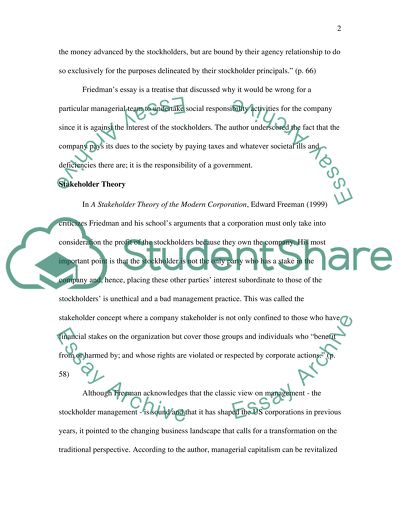Cite this document
(“Stockholder management versus stakeholder management Essay”, n.d.)
Retrieved from https://studentshare.org/miscellaneous/1540178-stockholder-management-versus-stakeholder-management
Retrieved from https://studentshare.org/miscellaneous/1540178-stockholder-management-versus-stakeholder-management
(Stockholder Management Versus Stakeholder Management Essay)
https://studentshare.org/miscellaneous/1540178-stockholder-management-versus-stakeholder-management.
https://studentshare.org/miscellaneous/1540178-stockholder-management-versus-stakeholder-management.
“Stockholder Management Versus Stakeholder Management Essay”, n.d. https://studentshare.org/miscellaneous/1540178-stockholder-management-versus-stakeholder-management.


